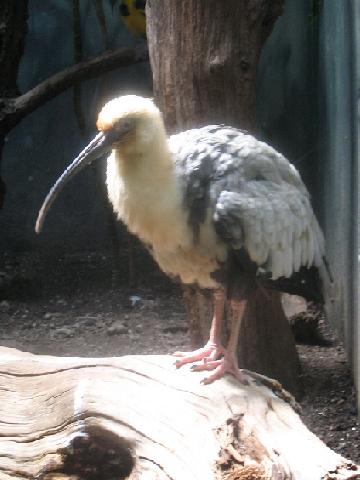|
| 질의: reptile | 결과: 1764번째/2587 | |
Buff-necked Ibis (Theristicus caudatus) - Wiki
| 제목: | Buff-necked Ibis (Theristicus caudatus) - Wiki
| |

| 해상도: 360x480
파일크기: 26915 Bytes
등록시간: 2007:10:24 17:05:45
|
Buff-necked Ibis
From Wikipedia, the free encyclopedia
[Photo] Buff-necked Ibis (Theristicus caudatus). Date May 28, 2007. Author http://commons.wikimedia.org/wiki/User:Stavenn | Permission is granted to copy, distribute and/or modify this document under the terms of the GNU Free Documentation License, Version 1.2 or any later version published by the Free Software Foundation; with no Invariant Sections, no Front-Cover Texts, and no Back-Cover Texts. A copy of the license is included in the section entitled "GNU Free Documentation License". |
The Buff-necked Ibis, Theristicus caudatus also known as White-throated Ibis is a medium-sized, approximately 76cm long, South American ibis. It has a buffish neck, black bill, grey upperparts plumage, reddish legs, part of wing white and black below. Both sexes are similar.
Its appearance resembles the Black-faced Ibis, distinguished by its white wings and for having less extent of buffish breast than the latter species.
The Buff-necked Ibis is distributed to the woodlands, marshes, savanna, lakes and open forests of eastern regions of South America, from Colombia to Uruguay and northern parts of Argentina. Its diet consists mainly of insects, spiders, frogs, reptiles, snails, invertebrates and small mammals found in soft soils. The female usually lays between two to four eggs in a platform nest on trees, made from twigs and branches.
Widespread throughout its large habitat range, the Buff-necked Ibis is evaluated as Least Concern on the IUCN Red List of threatened Species.
http://en.wikipedia.org/wiki/Buff-necked_Ibis
| The text in this page is based on the copyrighted Wikipedia article shown in above URL. It is used under the GNU Free Documentation License. You may redistribute it, verbatim or modified, providing that you comply with the terms of the GFDL. |
|
^o^
동물그림창고 똑똑전화 누리집
^o^
|
|